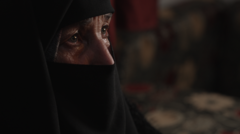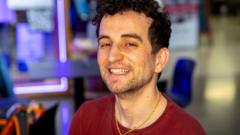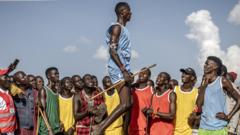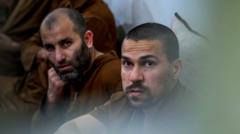The recent fall of Bashar al-Assad’s regime evokes mixed reactions in Deraa, where the death of 13-year-old Hamza al-Khatib ignited protests in 2011. His mother Samira mourns the loss of her two sons and hopes for justice, while others in Deraa express hope for a unified, democratic future despite ongoing challenges.
Grief and Hope Amidst Change: The Khatib Family's Struggle in Post-Assad Syria

Grief and Hope Amidst Change: The Khatib Family's Struggle in Post-Assad Syria
The Khatib family's turmoil reflects the deep scars of a decade-long war as they seek justice for lost loved ones in a changing Syria.
Hamza al-Khatib's tragic death in May 2011 ignited a wave of protests in Syria that escalated into a civil war, largely rooted in the repression felt in Deraa, his hometown. Nearly twelve years later, the fall of Bashar al-Assad’s regime resonates deeply in the community. The Khatib family, specifically, embodies the complex emotions surrounding this political shift.
Recently, the family received distressing news about the fate of Omar, Hamza's older brother, who had been arrested in 2019. Documents from the notorious Saydnaya prison confirmed his death, amplifying the grief already present in the home where Samira Khatib mourns multiple losses. "I was waiting for him to come back," Samira expressed, shaken and dressed in mourning attire, following the recent death of her husband.
In an emotional reflection, Samira articulated her desire for retribution against Assad—"I hope he will pay the price... and that God will take revenge on him, and on his children." Her sentiments highlight not just a personal tragedy but also a collective sense of loss that permeates the local community.
Deraa was one of the first areas to rally against Assad's rule, with protests emerging after the shocking treatment of young demonstrators like Hamza. The local opposition, rooted in the Free Syrian Army (FSA), fought back against regime forces, leading to unrest that shaped the conflict’s early stages. Ahmed al-Awda, a former army officer turned militia leader, reminisces about the jubilation felt when Damascus fell, signifying a potential end to their suffering.
Despite this new political landscape, uncertainty looms. Al-Awda reflects on the challenges that lie ahead, including the risk of the Islamic State resurgence now that Assad's allies, Iran and Russia, are less involved in suppressing these threats. He expressed hope for a democratic future, insisting that the Syrian populace would never again support a dictator.
As the Khatib family continues to navigate their grief, including the heartbreaking condition of Hamza's grave—marked by damage from conflict—the sentiments of celebration and sorrow coexist. The path forward remains fraught with challenges, as the once united front against Assad finds itself at a crossroads. The wounds of war linger, and while the fall of a regime offers a glimmer of hope, the quest for enduring peace in Syria is far from realized.



















